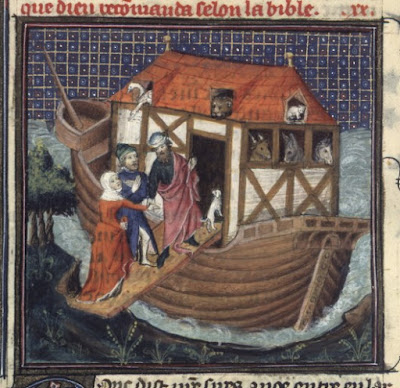 |
| For our salvation is nearer now than when we first believed; the night is advanced, the day is at hand. |
With violet silence it begins, turning our year and our eyes in expectation of the God Who comes to dwell among us. The sights and sounds could not be more different here from those outside, or the preparations directed toward a more different project. What we Catholics do here is different from what many deem urgent in these days.
The stark difference of Advent from popular so-called Christmastime or, poorer still, “the holidays,” reveals why and how what we do in this sacred place, our church, is so different from what is done elsewhere, and therefore necessarily is not what many people expect.
The public and popular culture that surrounds us is based in commerce and appetite, stoked by emotional manipulation and ordered toward consumption or indignation. It speaks of freedom, but emphasizes desire; it flatters people’s uniqueness, while pulling them into the herd. Flashing lights and signs, amplified soundtracks, constant offers, and congratulatory transactions simultaneously stoke and soothe the fear of missing out. Throughout the year they surround us, but in these days, they combine to form an omnipresent chorus. It’s beginning to look a lot like Christmas, they sing, and dare anyone to say otherwise.
We dare. We must dare, lest we be consumed by our own consumption. We say otherwise when we unite our voices into the words of the Church, O Come, O Come, God-with-us. We say otherwise when we unite our voices into the words of the Blessed Mother, Be it done unto me according to your word. The prescription and practice handed us intact and entire by the body that is both ours and Christ’s, the Church, is the gift of liturgical worship.
 |
| So too, you also must be prepared, for at an hour you do not expect, the Son of Man will come. |
The expectations and expressions of the secular culture have no place in our worship, and in fact would destroy it. The two are incompatible, and we depend on our worship to deliver us from the egoist appetites that the secular culture encourages. This is the age-old struggle of every human life, as one seeks to dominate the other, and one offers liberation from the other.
For this reason, what we do here, in this church, is different. It is not only different from the sights and sounds and songs of the secular culture in the marketplace, but also it is different from what has become a mainstream mingling of sights and sounds and songs into a hybrid form of worship familiar in many Catholic parishes. The music here, in this church, is different. The movements are different. The forms and expressions are different, because our God is different. God is holy. That’s what holy means: different, unlike us.
Our God became Man (like us) so that we could become holy (like Him). Our communion in this sacred place is not only with one another, which is beautiful but insufficient. Most importantly, our communion is with God, Who is different, Who is holy. Who makes us holy, like Him; Who makes us different.
To make our worship of God resemble the secular culture is to reject that transformation. That pollutes or even replaces our worship of God with the worship of ourselves, decorated with our emotions and our appetites. It may send people home feeling good about themselves, but those feelings immunize them against awareness of the difference and distance between themselves and God.
Our secular culture sustains a roaring economy and advancing technology, and by its pervasiveness shapes our experience and expression. But the language and goods of this culture are completely unsuited to our encounter with the Living God Who created us, redeems us, and beckons us into communion with Him here and now and unto the ages of ages. Participating in the worship of the Church as received from the Church is the antidote to the self-destructive selfishness that drives and defines our secular culture.
 |
| As it was in the days of Noah, so it will be at the coming of the Son of Man. |
The clear divergence in both form and content between the secular and the sacred during Advent is our teacher for the whole year. Put aside tasks and habits that are literally mundane, that is, of the world, and enter freely and willingly Advent worship and preparation. Find yourself made open to Christ Jesus, the life, the truth, and the Way throughout the entire year.
Monsignor Smith